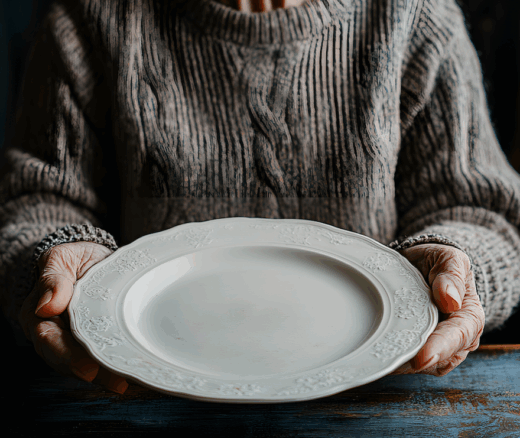
A Hidden Threat After Cancer: Food Insecurity and Early Death
Food-Insecure Cancer Survivors Live Shorter Lives, Especially if They Can’t Use Federal Programs Like SNAP
Blog Post
While social networks are taking increasing criticism for their role in spreading misinformation, a new study points to their potential to correct longstanding gender and racial biases in clinical care. In Nature Communications, LDI Senior Fellow Damon Centola and colleagues show that clinicians participating in an “egalitarian” peer network reduced gender and racial inequities in clinical assessments and treatment recommendations.
Centola and colleagues recruited 840 practicing clinicians from across the U.S. to view an online video of actors representing a Black female or white male patient. Both appeared to be 65 years old. They dressed identically and used the same script and body language to describe chest pains. Patients presented identical clinical information, including the same electrocardiogram and medical history with risk factors for coronary artery disease. All information pointed to specific, guideline-based care recommendations.
In response, clinicians then did two things: They estimated the probability of the patient having a major cardiac event in the next 30 days. And they chose one of four treatment options:
The clinician participants went through two more rounds of viewing their video and could change their responses in each round. They were randomized to either a control group that did not see the assessments and recommendations of their peers, or an experimental group of a network of 40 clinicians. The anonymous network allowed members to see the real-time diagnostic estimates of four others.
The initial round of responses from both control and network groups confirmed biases seen in other studies: 22% of clinicians viewing the video of the white male patient recommended the highest-quality care option compared to 14% hearing the same information from the Black female patient. The most common choices were an undertreatment option.
The control group did not change their recommendations over after reviewing the video, and the treatment disparities remained. For example, after three rounds, they still showed a difference of 15 percentage points between the Black female and white male patient in recommending the most unsafe undertreatment option.
However, clinicians who saw the responses of their peers significantly improved in selecting the high-quality treatment for the Black female patient: Their recommendations for guideline-based care jumped 13 percentage points to 27% in the final responses. This change eliminated the disparity in care recommendations between the two patients.
Improvements in care decisions for the Black female patient were dramatic partly because initial inequities were so large. But the study also showed significant improvements for the white male patient, suggesting that peer information-sharing improves care quality for all.
How should we interpret these findings, and how can health systems apply them to improve care? First, it adds to a more nuanced understanding of how social networks can change behavior and beliefs. Studies by Centola’s group and others show that, contrary to conventional wisdom, exchanging information in certain types of social networks increases the accuracy of group beliefs, even in politically polarizing situations. In other words, in the right circumstances, the “wisdom of crowds” prevails.
Based on this prior work, this study’s network was deliberately egalitarian: Each clinician had four connections, so all had an equal number of “followers.” Egalitarian networks have no dominant or senior individual, thereby promoting collective accuracy and boosting factual information. In general, individuals with correct information tend to maintain their position, while those with inaccurate beliefs move toward greater accuracy. In this study, the clinicians who revised their responses most often were those initially selecting inaccurate options, and their revisions were toward better care choices.
Social networks are often thought to propagate only misinformation. However, Centola and colleagues show that in the right conditions, networks can move us toward more accurate beliefs and decisions, even in the face of longstanding and stubborn racial and gender bias. With growing opportunities for online clinical support, health systems could develop technologies that allow clinicians to share information in structured peer networks, taking advantage of the wisdom of crowds to reduce clinical biases and improve health care quality for all.
The study, “The Reduction of Race and Gender Bias in Clinical Treatment Recommendations Using Clinician Peer Networks in an Experimental Setting” was published in Nature Communications on November 15, 2021. Authors were Damon Centola, author of Change: How To Make Big Things Happen, Douglas Guilbeault, Urmimala Sarkar, Elaine Khoong, and Jingwen Zhang.

Food-Insecure Cancer Survivors Live Shorter Lives, Especially if They Can’t Use Federal Programs Like SNAP

Outdated Laws Target Black and Queer Lives in Over 30 States, Fueling a Deadly Disease

Selected for Current and Future Research in the Science of Amputee Care

Penn LDI Seminar Details How Administrative Barriers, Subsidy Rollbacks, and Work Requirements Will Block Life-Saving Care

Top Experts Warn of Devastating Impact on Community Safety Efforts

A Gathering of a Health Services Research Community Currently Under Siege